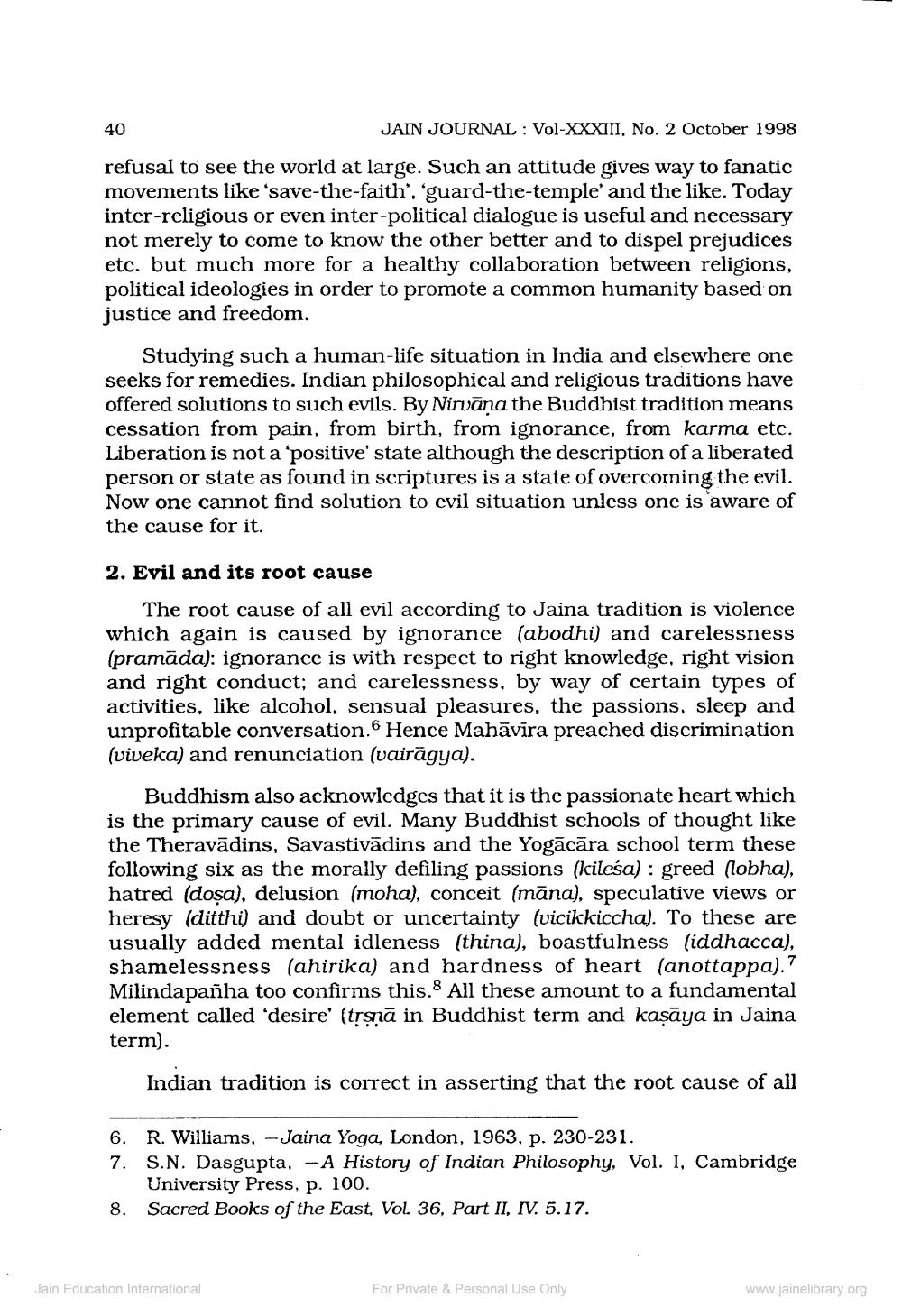Book Title: Jain Journal 1998 10 Author(s): Jain Bhawan Publication Publisher: Jain Bhawan Publication View full book textPage 9
________________ 40 JAIN JOURNAL : Vol-XXXIII, No. 2 October 1998 refusal to see the world at large. Such an attitude gives way to fanatic movements like 'save-the-faith', 'guard-the-temple' and the like. Today inter-religious or even inter-political dialogue is useful and necessary not merely to come to know the other better and to dispel prejudices etc. but much more for a healthy collaboration between religions, political ideologies in order to promote a common humanity based on justice and freedom. Studying such a human-life situation in India and elsewhere one seeks for remedies. Indian philosophical and religious traditions have offered solutions to such evils. By Nirvana the Buddhist tradition means cessation from pain, from birth, from ignorance, from karma etc. Liberation is not a positive' state although the description of a liberated person or state as found in scriptures is a state of overcoming the evil. Now one cannot find solution to evil situation unless one is aware of the cause for it. 2. Evil and its root cause The root cause of all evil according to Jaina tradition is violence which again is caused by ignorance (abodhi) and carelessness (pramāda): ignorance is with respect to right knowledge, right vision and right conduct; and carelessness, by way of certain types of activities, like alcohol, sensual pleasures, the passions, sleep and unprofitable conversation. Hence Mahāvīra preached discrimination (viveka) and renunciation (vairāgya). Buddhism also acknowledges that it is the passionate heart which is the primary cause of evil. Many Buddhist schools of thought like the Theravādins, Savastivādins and the Yogācāra school term these following six as the morally defiling passions (kileśa) : greed (lobha), hatred (dosa), delusion (moha), conceit (māna), speculative views or heresy (ditthi) and doubt or uncertainty (vicikkiccha). To these are usually added mental idleness (thina), boastfulness (iddhacca), shamelessness (ahirika) and hardness of heart (anottappa).7 Milindapañha too confirms this. All these amount to a fundamental element called 'desire' (trsnā in Buddhist term and kasāya in Jaina term). Indian tradition is correct in asserting that the root cause of all 6. R. Williams, -Jaina Yoga, London, 1963, p. 230-231. 7. S.N. Dasgupta, - A History of Indian Philosophy, Vol. I, Cambridge University Press, p. 100. 8. Sacred Books of the East, Vol 36, Part II, IV. 5.17. Jain Education International For Private & Personal Use Only www.jainelibrary.orgPage Navigation
1 ... 7 8 9 10 11 12 13 14 15 16 17 18 19 20 21 22 23 24 25 26 27 28 29 30 31 32 33 34 35 36 37 38 39 40 41 42 43 44 45 46 47 48 49 50 51 52 53 54 55 56 57 58 59 60 61 62 63 64 65 66
